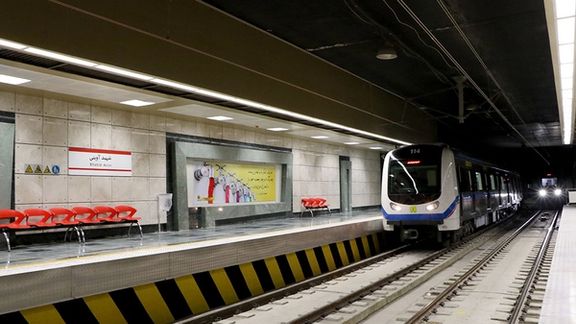Hijab Enforcer in Shiraz Metro Sexually Assaults 9-Year-Old Girl to 'Test Maturity'

A hijab enforcer at a metro station in Shiraz, southern Iran, sexually assaulted a nine-year-old girl to "test maturity", according to human rights sources.

A hijab enforcer at a metro station in Shiraz, southern Iran, sexually assaulted a nine-year-old girl to "test maturity", according to human rights sources.
Lawyer Mohammad Hadi Jafarpour informed the Human Rights Activists News Agency (HRANA) that the officer aggressively touched the breasts of the child.
Enforcers then told the mother her daughter needed to wear a hijab because of her "prominent breasts."
Jafarpour, who was a witness to the incident, said there is no oversight of the hijab enforcers whose violent and sexually abusive actions haunt the country's women and girls as the regime struggles to enforce nationwide rejection of mandatory hijab laws.
“This lack of accountability severely impedes the ability to pursue legal recourse and protect citizens' rights in cases of misconduct," the lawyer said.
Hijab enforcers do not qualify as judicial officers and are only allowed to issue verbal warnings about hijab compliance.
“They lack any further authority, such as physically touching individuals, recording vehicle numbers, or taking photographs,” he explained.
In 2022, authorities introduced face recognition technology on subway CCTV cameras to photograph unveiled women. The heightened scrutiny followed the death of Mahsa Amini in hijab police custody in September 2022, which sparked widespread "Woman, Life, Freedom" protests.
Last year, Tehran municipality deployed 400 personnel to enforce hijab laws at subway stations in the capital. Iranian news sources and social media accounts documented an increased presence of officers equipped with cameras, dubbed as the "horror tunnel" for women as crackdowns on hijab only worsened in the wake of the 2022 uprising.
In recent years, hundreds of cases of state-sanctioned sexual abuse and humiliation at the hands of Iran's security forces and hijab enforcers have been publicly documented.
Activists and UN experts have argued that the increased oppression and institutionalized discrimination faced by women and girls under the Islamic regime constitutes or could amount to gender apartheid.